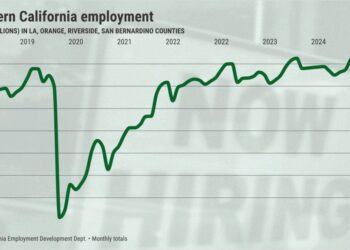By Kristen Hwang and Ana B. Ibarra | CalMatters
Gov. Gavin Newsom’s surprise announcement via Twitter on Monday that California would not do business with pharmacy giant Walgreens caused widespread confusion in a state where more than one-third of the population pays for prescriptions with government-funded health insurance.
Walgreens confirmed last week it would not distribute abortion pills, which are also commonly used for miscarriages, in 20 states where it faces legal pushback. In some of these states, the abortion pill — mifepristone — remains legal. However, Republican governors in these states threatened Walgreens and a cadre of retail pharmacies with legal consequences if they sell the pills.
Newsom’s retaliatory tweet took health plans across the state by surprise and raised myriad questions about the ripple effects of his decision.
“I’ll be honest, you are the first person telling me about this,” said Penny Griego, spokesperson for the L.A. Care Health Plan, the state’s largest Medi-Cal plan. Medi-Cal is the public insurance option for low-income Californians and people with disabilities.
It also raised questions about whether Walgreens would be excluded from distributing the state’s generic insulin.
In a statement, Brandon Richards, a spokesperson for Newsom’s office, said “California is reviewing all relationships between Walgreens and the state. We will not pursue business with companies that cave to right-wing bullies pushing their extremist agenda or companies that put politics above the health of women and girls.”
No further details were provided, and follow-up questions were ignored.
Walgreens operates nearly 600 stores in California, accounting for about 10% of the state’s pharmacy market. It’s a key prescription provider for Medi-Cal insurers. Walgreens locations are listed in the state’s pharmacy directory for Medi-Cal enrollees.
In a statement, a Walgreens spokesperson said “From the outset, we have made…
Read the full article here







